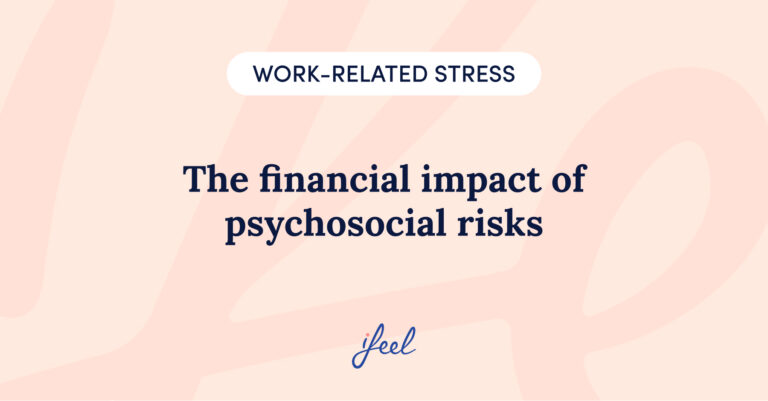Setting professional goals is a crucial practice in the workplace for individual and organisational development and growth. Clear and achievable goals can drive personal growth and benefit organisations by aligning individual efforts with corporate goals.
However, it is common for people to find it difficult to set a plan or define achievable goals that are aligned with their personal aspirations. Not having a plan or defined goals can cause us to get lost in our fast-paced world. That is why learning how to set professional goals that drive our careers and lead us to fulfill our aspirations is crucial.

Many companies in the corporate sector are adopting innovative goal-setting approaches. For example, Google uses a system of OKRs to set clear goals and measure progress. This approach allows employees to align their personal goals with company objectives in a transparent and collaborative way.
Such an approach aligns with data indicating that professional development opportunities can increase employee retention and engagement with the company. In addition, companies that invest in employee development tend to have a more competent and motivated workforce.
Why are professional goals important?
Professional goals act as a compass that guides employees’ growth and development. They provide direction, motivation, and a sense of purpose. In fact, research shows that when employees have clear goals, they are more likely to feel engaged and satisfied with their work.
In addition, professional goals can improve productivity and overall organisational performance by ensuring that all team members work towards common goals.
In the corporate context, setting career goals also facilitates career planning and talent development within the company. Organisations can identify the skills and competencies they need to develop in their workforce to achieve their strategic objectives.
This way, career goals not only benefit individuals but also strengthen the organisation as a whole by contributing to the organisation’s success:
| Benefit | Description |
|---|---|
| Provides direction | Helps maintain focus and direction in the professional path. |
| Increases motivation | Provides a constant source of motivation and purpose. |
| Allows measurement of progress | Facilitates the evaluation of progress and informed decision-making. |
| Develops Skills | Encourages the acquisition of new skills and the improvement of existing ones. |
| Increases Productivity | Motivated and directed employees are more productive. |
| Retains Talent | Employees who see a clear future and growth opportunities are less likely to leave the company. |
| Improves Workplace Environment | Clarity in goals improves job satisfaction and reduces conflicts. |
How to set effective professional goals
Setting effective professional goals requires a structured and deliberate approach. A widely recognised method for setting effective goals is the SMART goals model for employees, which ensures that goals are:
- Specific: Goals should be clear, specific, and well-defined. Rather than setting a vague goal such as ‘improve my skills’, it is more effective to set a concrete goal such as ‘complete a leadership course in the next six months’.
- Measurable: It is important that goals can be measured to assess progress. Specific metrics, such as ‘increase sales by 20% in the next quarter’, help to maintain focus and measure success.
- Achievable: When defining professional goals, it is important that they are realistic and achievable. Otherwise, this can cause frustration or stress.
- Relevant: Professional goals should be aligned with the organisation’s strategic objectives. This ensures that individual efforts contribute to the company’s overall success.
- Time-bound: Goals should have a clear time frame. Setting deadlines helps maintain momentum and ensures consistent steps are taken towards achieving goals.

Steps to follow in setting professional goals
- Conduct a self-assessment: Identify strengths, weaknesses, interests and personal values. Use tools like the SWOT matrix (Strengths, Weaknesses, Opportunities, Threats) for a deeper analysis.
- Define objectives: Set short, medium, and long-term goals aligned with the company’s overall objectives. Example: ‘In the next six months, I want to improve my leadership skills by participating in a mentoring programme’.
- Develop an action plan: Define a detailed plan to achieve each goal, including specific steps and resources needed.
- Track and review: Monitor progress regularly and adjust goals as needed. Use goal management apps such as Trello or Asana to keep effective track.
The Role of HR Professionals
Human resources professionals play a crucial role in setting and promoting professional goals in the organisation. Their role includes facilitating the identification of goals through performance reviews helping employees connect with their purpose and thus define their career objectives.
In addition, HR can provide resources and support through training programmes, mentoring, employee well-being training, and other resources needed to achieve these goals.
To support employees’ professional development, HR departments can implement tracking systems to monitor their progress by providing regular feedback and conducting periodic evaluations to identify improvement areas and growth opportunities.
By fostering a culture of continuous development, HR professionals create an environment that values and promotes professional growth through incentives and recognition for goal achievement. This results in a company with a more skilled and motivated workforce, which increases productivity and efficiency.
In addition, by investing in the development of its employees, the company improves its talent retention, reducing costs associated with high employee turnover. Employee satisfaction and engagement also increase, creating a positive work environment fostering innovation and achieving organisational goals.

Lisa Porres, Chief People Officer at ifeel partner Spotahome, points out:
«Emotional well-being is fundamental to fostering creativity, the generation of new ideas, and the determination to see them through – vital in a startup environment such as ours to ensure medium to long-term success. My role involves implementing policies, programmes, and resources that support our employees’ mental health, known as “Spotters”, and promote an environment where they feel supported and valued..»
This quote underlines how mental well-being is key to achieving professional goals, especially in dynamic and creative environments. It emphasises the importance of leadership focused on employee support and continuous development.
Strategies to promote goal-setting
- Organisational transparency: Maintain open communication about development opportunities and expectations.
- Constant feedback: Foster an environment where constructive feedback is given and received regularly.
- Goal alignment: Ensure that individual goals are aligned with the organisation’s strategic objectives.
- Flexibility and adaptability: Allow for goal adjustments according to the changing needs of the market and the organisation.
- Performance management platforms: Implement software that facilitates goal tracking and management.
Unlocking your team’s potential
At ifeel, we know that professional goals are fundamental to the development and success of both employees and organisations. Setting clear and achievable goals, supported by an environment that promotes continuous growth and development, is essential.
To assist in this process, our team of psychologists specialising in mental well-being has developed a mental well-being program for companies aimed at helping companies enhance employee engagement and boost productivity.
This collaboration allows HR managers to receive personalised, data-based advice on the most effective measures for detecting employee mental health issues and assessing the workplace environment. It’s the best way to understand their needs. Moreover, ifeel’s corporate mental well-being solution offers employees a structured mental health care service tailored to their needs at any given time.
We hope you found this article on professional goals interesting. If you want more information about our mental well-being solution for companies, simply request it, and we will contact your team soon.






